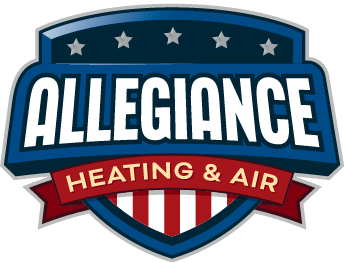Tips for Improving Your Home’s Indoor Air Quality
Stories of the horrors of air pollution and its impact on our health pervade the media, making us think twice about heading outdoors for any reason. Have you given any thought to the quality of your indoor air and how it is impacting your life?
Indoor Time
According to statistics from the U.S. Department of energy, we spend nearly two-thirds of our time indoors, with another 5% of our day spent in enclosed cars or vehicles traveling from place to place. Knowing what we are being exposed to during this indoor time will make a significant impact on how we choose to clean things up.
Consequences of Poor Indoor Air Quality
There are several potential consequences of allowing poor indoor air quality to circulate throughout your home. Some of these consequences include:
Reduced Productivity
Homes with poor air quality do not have a solid track record of productivity and clear thinking. Your body’s natural response to poor indoor air quality is fuzzy thinking, fatigue, and sluggishness. You and your loved ones may complain of headaches, nausea, and irritated eyes and nose, making life generally uncomfortable for anyone living in that environment for any length of time.
Short Term Physical Reactions
Short-term physical reactions to poor indoor air quality may be mild to moderate to severe, depending on your health and any pre-existing conditions that you may have. People report symptoms such as:
- Dizziness
- Headaches
- Fatigue
- Nausea
- Respiratory Congestion
If your HVAC system hasn’t been properly maintained or if your filter hasn’t been changed and cleaned for some time, then your indoor air quality is compromised. Cleaning up your indoor game will be an essential part of feeling better and preserving and protecting your health.
Long-Term Health Consequences
Long-term exposure to dirty, saturated air can result in health issues such as heart disease, respiratory disease, and cancer, all of which have the potential to be fatal. Symptoms may show up years after first exposure, with treatment for these diseases becoming an all-consuming process that results in drastic consequences. Being aware of these severe side effects of exposure to poor indoor air quality should inspire you to take proactive measures as soon as possible to prevent a steady decline in health.
HVAC Failure
The very same contaminants that can have dire consequences for you can also clog up various components in your HVAC system, causing it to work harder than it should. Over time, this constant taxation of your system will cause parts to wear prematurely and break down, leading to total system failure. You may find yourself with an untimely and costly system replacement that costs you thousands to repair.
Take These Steps for Cleaner Indoor Air
Fortunately, some simple steps will put you back on track for cleaner, safer air. Take action now, and look forward to a cleaner living environment and a healthier HVAC system.
Clean Your House Regularly
Cleaning your house helps to remove dirt, dust, and debris that can clog your air filter and saturate your HVAC system. Vacuuming carpets weekly reduces allergens and dust that could otherwise circulate through your home. Washing bedding, dusting, and cleaning hard surfaces with soap and water can also reduce the presence of particulates in your home, helping you to breathe cleaner with every scrubbing session.
Remove Shoes When at Home
One of the simplest ways to improve your indoor air quality is to remove your shoes when stepping into your home. Who knows what you may have come in contact with when you were out? Remove shoes, and you contain dirt, chemicals, pesticides, and other pollutants effectively, preventing them from circulating throughout your home.
Regulate Humidity Levels
Healthy humidity levels in your home fall somewhere between 30 and 50%. If you have any more moisture than that, you canincrease your risk of developing mold and mildew somewhere in your home. Try to reduce humidity levels in your home by:
- Fixing leaky pipes
- Running exhaust fans when cooking and bathing
- Use a dehumidifier
- Opening doors and windows periodically to let fresh air in
Stop Smoking Indoors
Turn your home into a no-smoking zone. Secondhand smoke is as dangerous as ingesting it yourself, with cigarettes emitting almost 4000 potentially harmful chemicals that can have significant consequences on your health. Removing this source of pollution is taking an important step toward protecting your health.
Include Plants in Your Indoor Landscape
Plants don’t just add vibrant color and life to your space, they function as natural air purifiers. Certain plants such as the dragon tree, bamboo, spider plant, and English ivy help to clear the air of allergens and toxins, improving oxygen levels while adding lush beauty to your living spaces.
Clean and Change Filters Regularly
Always check air conditioner and HVAC system filters, cleaning and replacing them regularly. These filters are hard at work, removing impurities from the air and trapping them to keep them out of circulation. Over time, filters become saturated with debris to a point that they no longer work for you but against you. Remove and change a dirty filter and then replace it with a clean one that can easily continue to filter out nasty particles that would have an impact on your health.
Change Out Your Cleaning Products
Aerosol sprays, harmful cleaning agents, and even perfumes have a lasting effect on the quality of your indoor air. Clean your environment up from the inside by switching out harmful chemical cocktails in favor of natural blends. For bonus points, consider a homemade concoction of cleaning agents that won’t add to the debris in your home while providing you with a fresher living space.
Let Outside Air In
Even in the colder months of the year, you’ll need to crack a window or door from time to time to refresh your indoor air. Proper airflow and ventilation are necessary to ensure indoor air quality. This little burst of freshness can move contaminants such as cooking exhaust, fumes, dust, and allergens out of your home, refreshing them with outside air.
Keep Your HVAC System Clean and Well-Maintained
Your HVAC system has several components that can become clogged with dirt, dust, debris, and allergens that compromise indoor air quality. Keeping all parts of your system and ductwork clean and in good condition helps to reduce the levels of debris that are circulating throughout your home and ensures its proper function, which will save you money over time. Having a qualified HVAC technician service your system regularly will allow you to keep on top of smaller repairs, remove harmful contaminants from your system such as rodent droppings, mold, and mildew, and significantly reduce the percentage of contaminants that are allowed to float freely. As a result, you’ll experience cleaner, easier breathing, and you’ll reduce your risk of developing both short and long-term consequences associated with a dirty living space.
Your Partner in Creating Cleaner Living
Serving valued clients in the Louisville, Georgetown, Jeffersonville, and New Albany areas, Allegiance Heating & Air, LLC takes HVAC care and indoor air quality as seriously as you do. With services such as heating system repair, installation, cooling system maintenance and installation, commercial repair and maintenance, seasonal care and maintenance plans, and indoor air quality testing, we are committed to caring for our clients and improving comfort and quality, one home at a time. Contact us today to see how we can help you improve your indoor air quality and get you back on track to better health and productivity.




